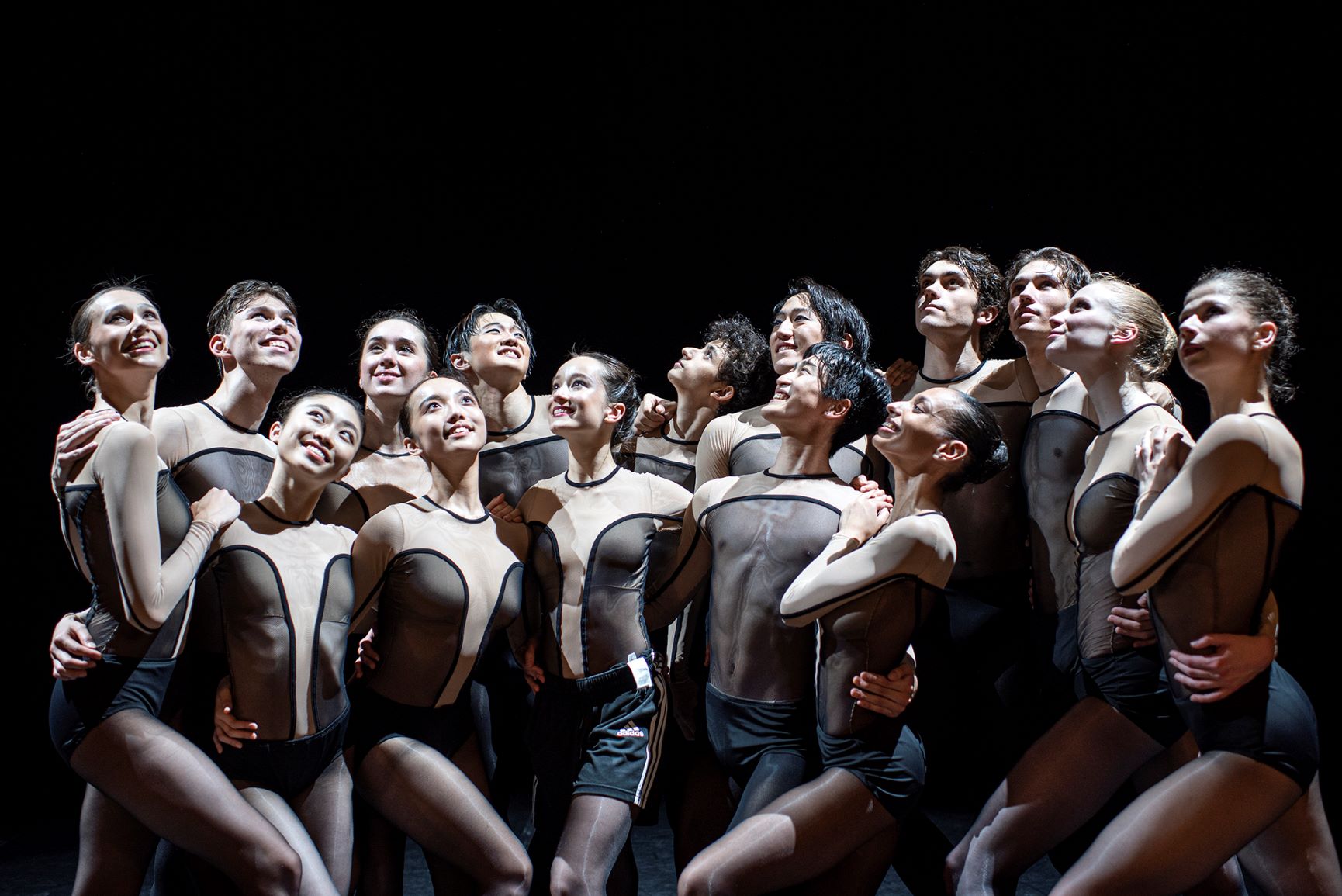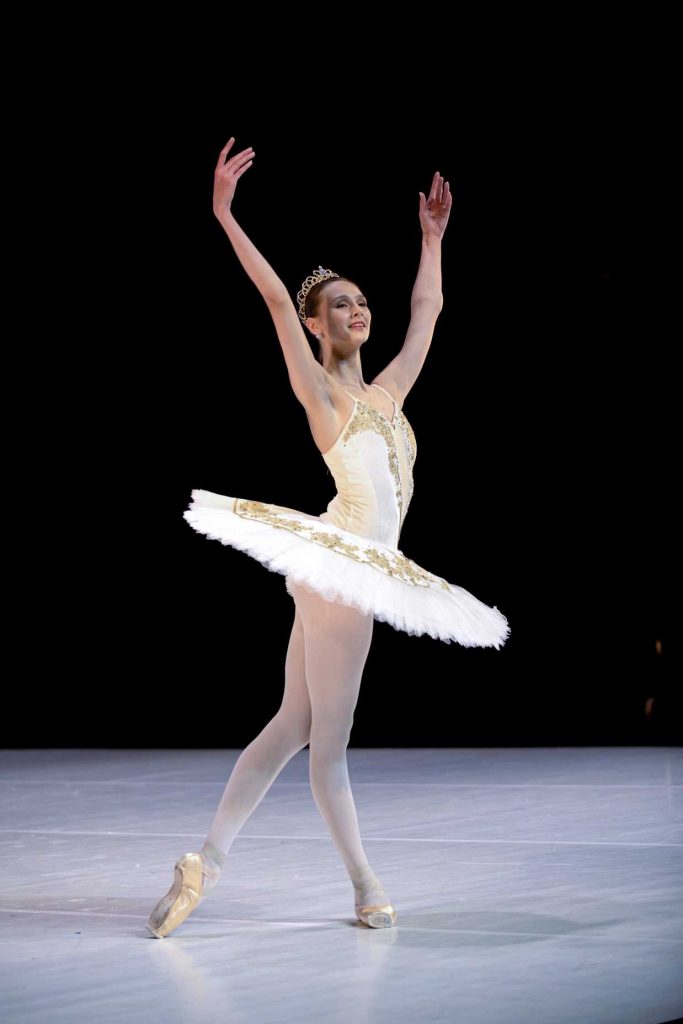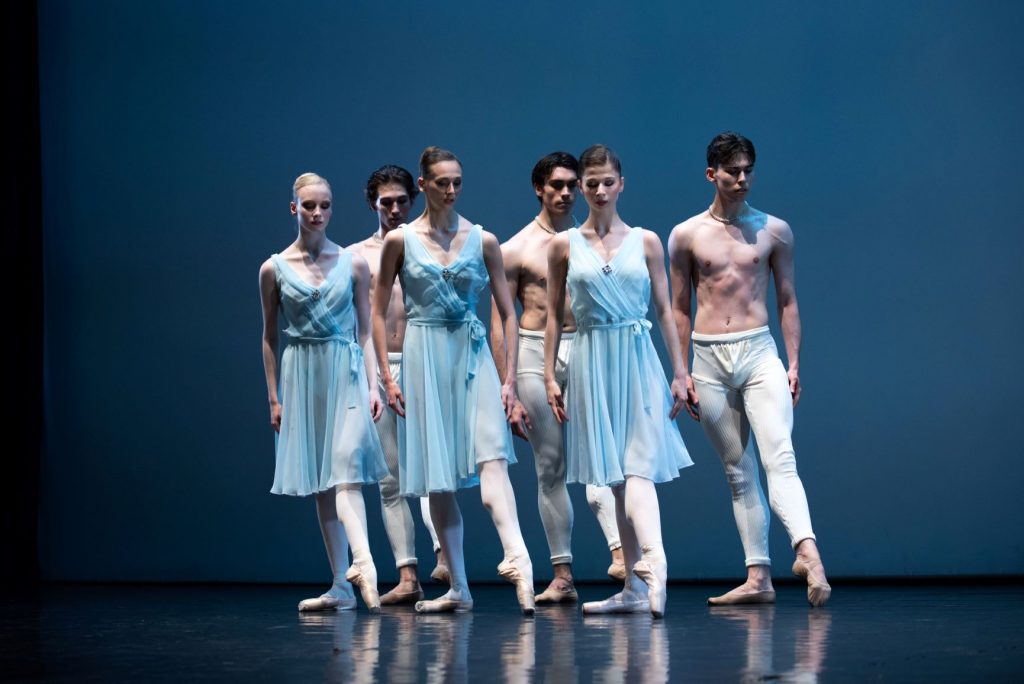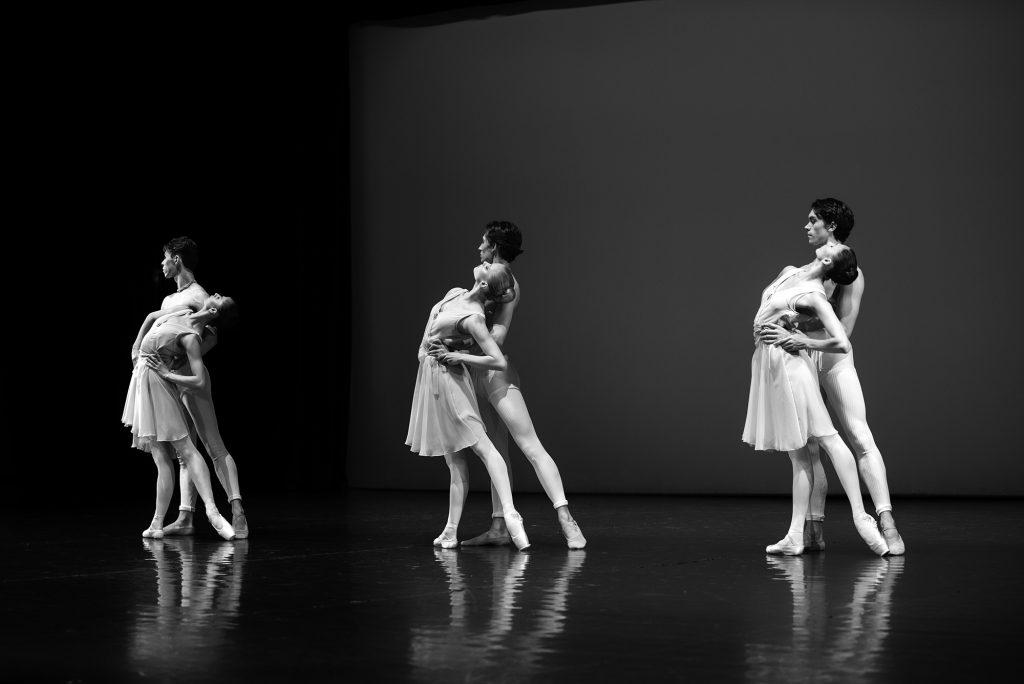
Graduating students of the Dance Artist Institute of the Hungarian Dance University (HDU) specialising in Classical Ballet will present their exam concert at the Hungarian State Opera House on 2 July.
In an article published earlier, the masters were interviewed about the exam concert that concluded nine years of work by the young people. This time, however, the students talk about their experiences, their preparation and the exam concert which will take place on 2 July at the Hungarian State Opera House.
On 27 May, the students performed part of the repertoire of the exam concert at the National Dance Theatre, followed by a performance at the MTE Jr Zoltán Nagy Theatre Room, where students, pupils and staff of the institution were able to watch the whole show.
The examination concert is traditionally a performance consisting of three parts. The first part is a one-act neoclassical ballet, namely the wonderful “Adagio Hammerklavier” choreographed by Hans van Manen. The second part consists of shorter pieces, pas de deux-s and solos, and it also includes excerpts from a romantic and two classical ballets performed the talented graduating students. In the third act, Jacopo Godani’s contemporary piece, “Moto Perpetuo” will be staged with an extensive movement repertoire. It is the first time that the choreography will be shown in Hungary.

Photos by Adrienne Horváth
Gvendolin Nagy, who is this year’s best graduating student of the classical ballet specialisation, winner of the Ágnes Roboz Award, recalled the rehearsal process after the class presented the concert exam at the university.
“We’ve been working on the exam concert for a long time and the process is varied, because every piece has a different master. In addition to the two masters of the year, Márta-Fodor Molnár and Szilárd Macher, I would like to mention Tamás Darai’s name as well, who was the teacher of the piece “Moto Perpetuo”. We worked with them and many other excellent masters. There are difficult days, but we get maximum support and if we are surrounded by a good atmosphere, and wonderful things can come out of it”, added Gvendolin Nagy. “It’s good that we performed the exam concert together, because we feel what it’s like to dance three pieces in a row. It’s a pleasure to dance with my peers and friends, it was a successful day for all of us.”
Máté Milchram also mentioned the importance of the university’s stage and expressed his thanks to the audience, to whom it was a pleasure to dance their exam concert.
“It was a very balanced performance, we received a lot of support from the audience and our peers. Since we were able to perform on the university stage, we were very confident.”
Borbála Kata Bán said that this time she can be herself in each of the pieces She has good memories of the past months as well as the class

“I really like the two pieces I can dance because I feel I can be myself in both of them. While in the first one I can focus inward, in the third one I can just let out what’s inside me, all the frenzy… I really had fun on stage today too!”

When asked which part is closest to him and why he likes to dance it, Dávid Borka highlighted the first and third act: “Adagio Hammerklavier” and “Moto Perpetuo”.
“Hans van Manen’s “Adagio Hammerklavier” features three couples dancing. We start together. It’s very nice to dance together for the first time. Then the couples dance separately, and finally we finish together. The rhythm of this part is beautiful. At the same time, we also really like the piece “Moto Perpetuo”, where we can let go of everything and put all our energy into it. Here we can really show the best of what we’ve got, all the work we’ve been working for all year is there on the stage.”
Dorottya Lengyel also highlighted the first act of the concert exam, Hans van Manen’s “Adagio Hammerklavier”, which is the closest piece to her heart because, as she said, she can identify with this part the most. The piece was also inspired the subject of her thesis.
“The first act is the one that I mostly feel mine, because my soul is in complete harmony with that piece. I wrote my thesis on “Hammerklavier”, so I know it, I experience it because I had to do a lot of research. It was an alienated, distant piece at the beginning, but listening to the choreographer’s instruction, we made it more and more human. We’ve changed the piece, so now, for example, there’s a lot more eye contact in the choreography, a lot more emotion to express.”


